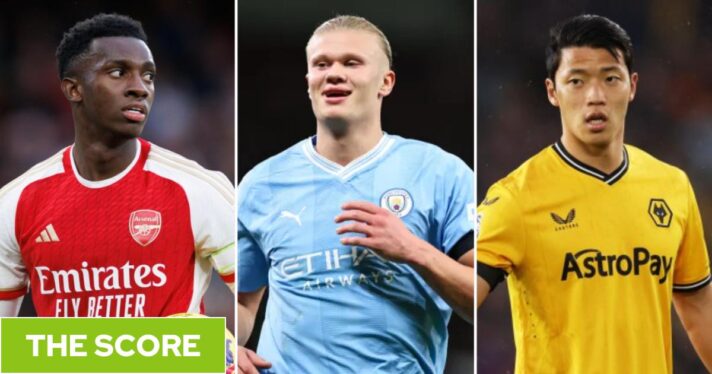LONDON — Currently languishing near the bottom of the fourth tier of English football, Forest Green Rovers don’t have the global profile, colossal riches or superstar players of the world’s top teams. But despite their small stature, the Rovers enjoy one major bragging right: they’re the first European soccer club to be sponsored by Rock & Roll Hall of Famers the Grateful Dead.
“For us, it’s a perfect match,” says the California band’s archivist and legacy manager, David Lemieux. “Forest Green Rovers is a team that really follows Grateful Dead values, which is to say that we’re both conscious of the world around us and we want to make sure that we leave it a better place than when we arrived.”
Grateful Dead’s decades-long promotion of environmental causes is well-known throughout the music business, but Forest Green Rovers’ eco credentials are equally impressive.
Based in the small town of Nailsworth, Gloucestershire, just over 100 miles outside London, Forest Green Rovers Football Club has been recognized by both the United Nations and football’s international governing body, FIFA, as “the world’s greenest football club.” The team and its owner, Dale Vince, have won praise for pioneering sustainable practices like using renewable energy to power its 5,000-capacity ground, transporting players in an electric bus and serving vegan food to players, staff and fans.

The idea to partner Grateful Dead with Forest Green first landed on Lemieux’s desk 18 months ago when it was presented to him by the retail and licensing team at Warner Music Group’s services division WMX, which looks after the group’s merchandising rights outside of touring and online. (Grateful Dead’s music catalog is handled by WMG’s Rhino Records, which also runs the band’s Dead.net website, while Warner Chappell Music represents the act’s publishing interests globally, in conjunction with the Grateful Dead’s company, Ice Nine).
At the time of WMX’s pitch, Lemieux wasn’t familiar with Forest Green Rovers, which has spent much of its 134-year history competing outside the top level, with its best-ever finish coming in the 2021/22 season when the club was crowned champions of League Two (they were relegated 12 months later). But after researching the club and its energy industrialist owner, he says it was a natural fit for the two organizations to team up on a clothing merch deal that sees Grateful Dead’s iconic green skull logo featured on a range of Forest Green co-branded sporting wear, t-shirts and hoodies, produced by U.K. sustainable clothing business I Dress Myself.
“We love to partner with cool people, cool companies and cool organizations who are trying to make a positive difference,” says Lemieux, a self-confessed “hippy Deadhead” who has worked for the legendary California-formed group for 25 years and been a follower of English football since the late 1990s, when he studied in the United Kingdom and would regularly attend matches.

Financial terms of the deal with Forest Green have not been disclosed, although Lemieux describes it as “not a huge money-maker for anyone.” (The most expensive clothing item on sale in the Forest Green online store is a “Grateful Dead Lightning Hoodie” featuring the green skull motif that costs around $75.00.)
For custodians of Grateful Dead — which officially disbanded in 1995 following the death of guitarist and songwriter Jerry Garcia but has continued to tour in various incarnations, most recently as Dead & Company, featuring original members Bob Weir and Mickey Hart — the tie-up with Forest Green is the latest in a vast and ever-growing line of merch and licensing deals helping keep the Grateful Dead brand alive.
At present, the band has deals with more than 100 merch partners and more than 750 products on sale in over 50 territories, spanning everything from water bottles to cosmic mushroom foraging tools to camping equipment to Grateful Dead-branded skis and snowboards, as well as an extensive range of t-shirts and clothing.
Historically, the bulk of those merch deals have been with companies in North America, Grateful Dead’s biggest market for touring and record sales. But Lemieux says he’s now seeing an increasing number of licensing offers come in from Japan, England, South America and other international territories.
“Brand awareness is growing and it’s growing fast in the international markets,” says Lemieux. He credits Warner Music’s licensing teams in New York and England for working hard to find “best in class” partners.
“At the heart of everything Grateful Dead do is sustainability, so when we work on projects for them, whether it’s a multi-million-dollar deal or a small project, they need to know about its sustainable nature,” says WMX licensing and record retail account director Alex Mitchell, who oversaw the merch deal with Forest Green Rovers.

Mitchell says the season-long partnership with the club (with an option to renew next year) is one of several licensing deals WMX are working on to “make the Grateful Dead story better known” in the United Kingdom and Europe beyond “just being a cool band t-shirt.”
Sports and music brand tie-ups are, of course, nothing new, and Grateful Dead has struck similar deals in the past (the band famously sponsored Lithuania’s cash-strapped 1992 Olympic basketball team and more recently held one-off brand partnerships with various baseball, basketball and ice hockey clubs in North America). But Forest Green marks its first real foray into the world’s most popular sport.
The deal comes at a time when soccer’s profile in the United States continues to climb, especially among young Americans, fueled by the arrival of global superstars like Lionel Messi to Major League Soccer and the crossover success of Apple TV+’s Ted Lasso and the hit FX series Welcome To Wrexham, which documents the fortunes of Wrexham A.F.C (who play in the same league as Forest Green) and its Hollywood actor owners Ryan Reynolds and Rob McElhenney.
https://www.billboard.com/pro/why-the-grateful-dead-teamed-english-football-club-merch/






